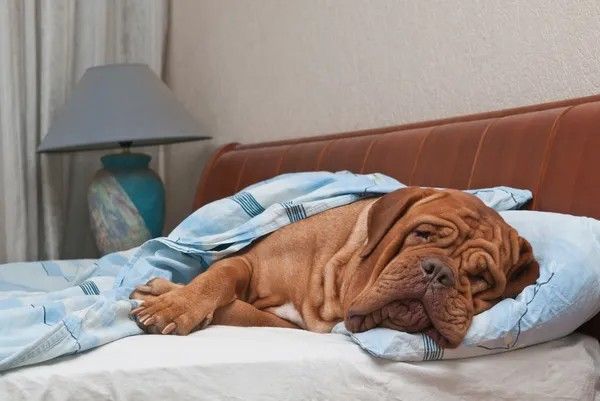
If your dog is coughing after surgery, it’s normal to feel concerned. Many pet owners wonder if it’s part of recovery or something more serious. Don’t worry—a mild cough can be expected after surgery. Understanding the causes can bring much-needed peace of mind and help you decide when to contact your vet.
At Pet Specialists of Hawaii, we’re here to support you with expert post-operative care and guidance to help your pet recover smoothly and comfortably.
Common Reasons Why Dogs Cough After Surgery
A mild cough is often a normal part of recovery, usually caused by irritation from intubation, anesthesia, or mild respiratory congestion. Knowing the cause helps determine if it will resolve on its own or if a vet visit is needed.
Tracheal Irritation from Intubation
The breathing tube used during surgery can irritate your dog’s trachea, causing a dry, hacking cough. This usually resolves within a few days as your dog’s throat heals.
Effects of Anesthesia
Anesthesia can cause brief respiratory changes like minor congestion or coughing. Some dogs may also develop a sore throat from the breathing tube, which can contribute to this irritation.
Pre-Existing Respiratory Conditions
If your dog has a history of respiratory conditions like kennel cough, allergies, or infections, surgery can temporarily trigger or worsen symptoms, including a cough.
When to Be Concerned About Your Dog’s Cough
While a mild cough is usually not alarming, watch for signs that require veterinary attention
Persistent or Worsening Cough: If your dog’s cough lasts more than a few days or becomes more severe
Signs of Respiratory Distress: Rapid breathing, wheezing, or noticeable difficulty breathing
Additional Symptoms: Fever, lethargy, nasal discharge, or lack of appetite
Changes at the Surgical Site: Swelling, redness, or unusual discharge that may indicate infection
Your dog’s well-being is our priority, and if any of these signs appear, don’t hesitate to reach out to your veterinarian for support.
How to Help Your Dog Recover Comfortably

At Pet Specialists of Hawaii, we are here to guide you every step of the way to help your dog recover as comfortably as possible. These measures can help you know how to help your dog’s coughing after surgery and support a healthy recovery.
Offer a Comfortable Resting Area
Your dog needs a calm, quiet space for your dog to rest while healing. Make sure to provide a soft and cozy spot away from household noise where they can feel safe and relaxed.
Keep an Eye on Food and Water Intake
Hydration and nutrition are really important for recovery. Encourage your dog to drink water and offer small meals to help them stay nourished. If your dog’s throat is irritated after surgery, soft food can make it easier to eat comfortably.
Limit Physical Activity
Restrict your dog’s movements as much as possible to avoid putting strain on your dog’s surgical site. Follow your veterinarian’s post-op care instructions carefully when it comes to activity levels.
Watch for Changes in Symptoms
Keep a close eye on your dog to catch any issues early. If your dog’s cough worsens, lingers longer than a few days, or is accompanied by other concerning symptoms, reach out for veterinary care.
Feel free to reach out for additional guidance. For expert post-operative guidance, Pet Specialists of Hawaii is here to help.
Is It Normal for a Dog to Cough After Surgery?
A mild cough after surgery is fairly common and generally resolves within a few days. However, if your dog’s cough continues, worsens, or is accompanied by other symptoms, it’s time to reach out to your vet. Your dog’s recovery should be as smooth as possible. If you’re concerned about your pet’s recovery, reach out to Pet Specialists of Hawaii for professional advice and compassionate care.
We’re here to help!
Sources
PetMD - Why Is My Dog Coughing?
American Kennel Club - Caring for Your Dog After Surgery









 Waipahu Waikele
Waipahu Waikele Pet Specialists of Hawaii
Pet Specialists of Hawaii

